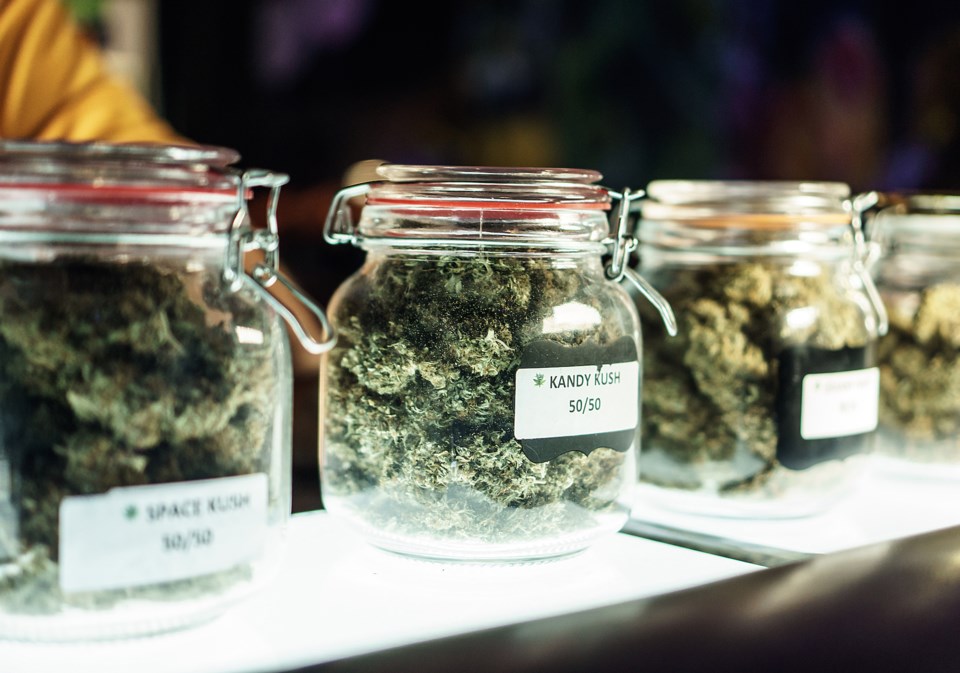There are some knowledge gaps in the community when it comes to recreational cannabis use, a new report from Wellington-Dufferin-Guelph Public Health states.
Over the summer, public health conducted a survey across the WDG region, with more than 2,000 survey responses from residents ages 16 and up. Nearly half were between the ages of 30 and 49, while just over half lived in Guelph and 31 per cent in Wellington County.
Since the survey was voluntary, most respondents were likely to use cannabis recreationally.
“We identified some serious knowledge gaps locally,” said manager of health promotion with WDGPH Anna Vanderlaan, who presented the report to the board on Wednesday.
The study found that knowledge was low when it came to the harms of cannabis use, including the impact on mental health, learning, memory, decision making and the developing youth brain.
For instance, the survey found that many respondents – particularly recreational cannabis users – believe it is ok to use cannabis while pregnant.
“There is no known safe amount of cannabis to use during pregnancy,” she said.
But about a quarter of survey respondents either disagreed with that statement, or weren’t sure.
“Consuming cannabis regularly while pregnant can lead to some fairly significant negative outcomes. Things like preterm birth and low birth rate. There's also an impact to the developing brain,” she said.
It can also lead to negative health outcomes for the child later in life, increasing the risk of things like learning problems, memory problems and hyperactivity.
“The good news is that if you look at the response by age, you can see younger individuals are more likely to know about (the) harms of cannabis during pregnancy,” Vanderlaan said.
For instance, only 16 per cent of those between the ages of 16 and 24 disagreed that cannabis can cause harm during pregnancy, compared to 27 per cent of those 65 and up.
“I think that is a testament to all of the education that we're doing with our youth, and I think a good rationale for continuing to stress that education.”
Since 2018, people are much more likely to use cannabis edibles. Yet, about 43 per cent of respondents said they didn’t know edibles have a delayed effect.
“It can take quite a while to feel the effects of an edible… much longer than if you were to consume cannabis in a different way, such as smoking,” she said.
If cannabis users aren’t aware of the delayed effects, they might think it’s not working and take more before it kicks in. Overuse can lead to things like paranoia and anxiety, she said.
“Our mantra in public health is start low and go slow,” she said, adding that with the increased interest in edibles, this is something public health needs to focus on when it comes to educating the public.
About one in three survey respondents didn’t know cannabis impacts youth differently than adults.
“The youth brain is still very much developing. By using cannabis (especially on a regular basis), it can lead to some significant problems with thinking, problem solving, memory,” she said.
“What makes me concerned is that 90 per cent of our survey respondents said that they had used cannabis before the age of 25,” she said. “So this is a message that we want to make sure we get out there. We want people to understand the risks before using a substance.”
To promote awareness, Vanderlaan said public health will be sharing the data with local partners and working with local drug strategy groups, as well as running some awareness campaigns throughout the year.
Alongside the school boards, an information session for parents will be organized for sometime in the spring as well.
“We're also putting together a toolkit for our school boards; our entire substance use team is working on that to make sure they have the right resources that they need,” she said.



